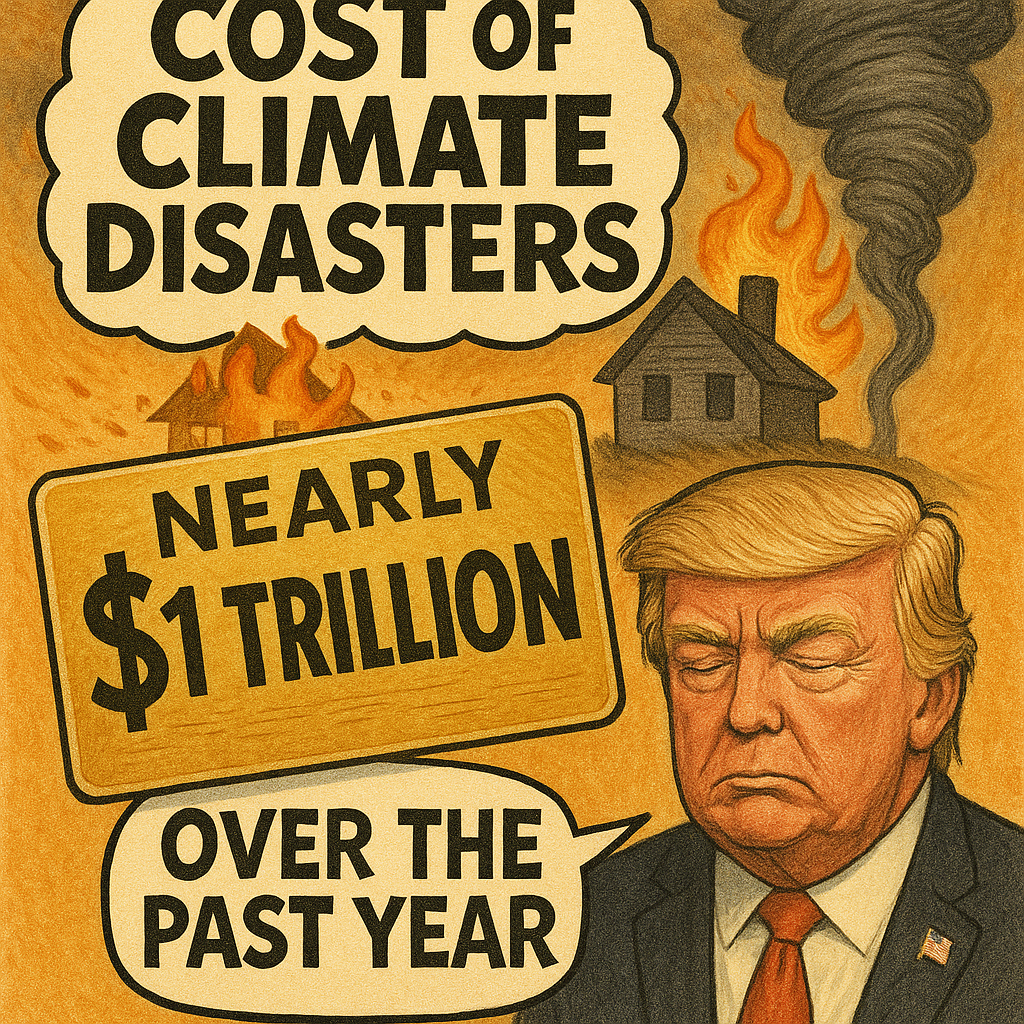The Cost of Climate Denial: America's $1 Trillion Wake-Up Call
10 comments
A recent report by Bloomberg has found that the price tag of climate disasters in the U.S. totaled almost $1 trillion over the past year to May. That's not a typo — one trillion dollars for disaster relief, insurance claims, rebuilding infrastructure, and emergency services. As Kate Aronoff cautions, these astronomical figures are not merely environmental data; they are warning bells from the economy that the nation cannot afford to keep neglecting.
This trillion-dollar cost contains direct federal spending as well as the rising cost facing average Americans. Among the most immediate effects has been on home insurance premiums, which have risen on average by 40% over the past six years. Home insurance is becoming prohibitively costly or simply unavailable for many families, especially those residing in disaster-prone areas.
While wildfires in California or hurricanes in Florida make the news, the most sensational increases in insurance premiums are really occurring in the Midwest. Nebraska, which has experienced a long period of being underreported in climate conversation around the country, is a prime example. Rates there have increased by 72% as increasingly frequent hailstorms and tornadoes sweep across the state.

Disasters Are Increasing — So Why Is the Government Retreating?
The Nebraska case is a warning in the making. In the 1990s, it suffered only four climate catastrophes that were over $1 billion each. In the past decade, it has had 22. That's a five-fold rate of increase in billion-dollar disasters, within a span of one generation. This is no accident — it is a measure of growing climate instability.
But even in the presence of this recognized and growing danger, the federal government appears to be going the other way.
Trump's administration has axed a llot of climate science research projects, meaning we'll have less data to inform us about climate change.
Then there's the proposal to dismantle the Federal Emergency Management Agency (FEMA) after the hurricane season this year. This means it's down to the local level, the States to bear the costs of climate related disasters.
The problem here is that local institutions simply don't have the resources to be able to manage climate level disasters such as wild fires at the local level.
FEMA was established exactly because it is only when an entire area is ruined that federal direction and assistance are needed. Cutting national emergency infrastructure will not eliminate climate catastrophes — it will merely make it slower, more deadly, and more costly.
The Price of Denial
Ultimately IMO this is not an issue of willful ignorance. Ignoring the cost of the economic harm of climate change, outsourcing it to someone else to pay, and pretending the damage isn't occurring won't solve the problem. Rather, it will continue to grow — economically, socially, and environmentally.
But then again this is classic neoliberalism... establish policies that enable the super wealthy to avoid cleaning up their mess.
Posted Using

Comments